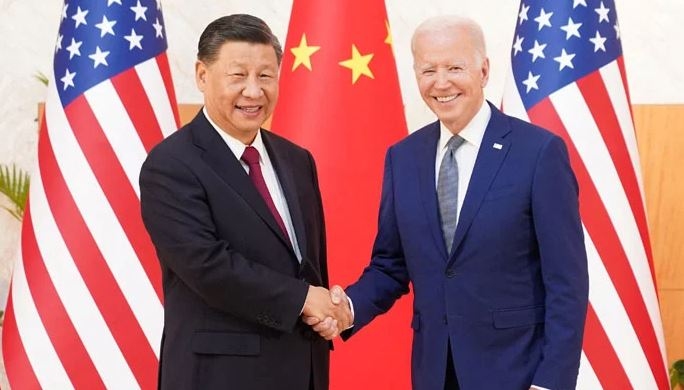While President Biden and his Chinese counterpart, Xi Jinping, have reduced tensions between their nations, they continue to compete for influence in Asia and beyond by taking opposing positions on how to manage poverty and the conflict in Ukraine.
Mr. Xi has portrayed China as a reliable regional partner, rejecting what he termed the United States’ “Cold War mindset” about the formation of security alliances. Tuesday at the Group of 20 summit, he talked eloquently about China’s “global endeavours” to combat poverty and war, while keeping publicly ambiguous about Russia’s invasion of Ukraine and President Vladimir V. Putin’s nuclear saber-rattling.
Mr. Xi said during the opening session of the G20 summit in Bali, Indonesia, “Drawing ideological divisions or encouraging group politics and bloc antagonism would only serve to divide the globe and impede global growth and human progress.”
President Biden unveiled new initiatives by wealthy Western nations promising hundreds of billions of dollars to build infrastructure in poor countries, a move widely viewed as a counter to China’s Belt and Road Initiative. He also met with the leaders of Italy and Turkey to bolster support for Ukraine.
The agendas of China and the United States at the summit, a meeting of the world’s largest economies, revealed that both countries are wooing other nations with competing interests and expenditure initiatives. This rivalry may occasionally assist intermediate powers — such as Indonesia, the host nation — by stimulating competition to offer aid and support, but it can also cause them to dread being squeezed between the squabbling giants.
Southeast Asian nations such as Indonesia, according to Courtney J. Fung, an associate scholar at the Lowy Institute in Sydney, Australia, are not interested in taking sides. They would prefer that these two states resolve their differences so that they are not caught in the middle.
In recent years, Mr. Xi’s trip to Indonesia was his first in-person appearance at a big international event outside of China. In September, he travelled to Uzbekistan for the first time since the epidemic took hold. Mr. Xi, whose authority was boosted by a Chinese Communist Party meeting that prolonged his leadership by five years last month, is prepared to revitalise China’s diplomacy. He has said that he wants China to advocate its answers to global challenges with more energy.
Ms. Fung said that Mr. Xi’s unwillingness to take a firmer position on Ukraine or to engage in the complex process of attempting to end the crisis demonstrated the limitations China confronts if it seeks to unseat the United States as a global power broker.
Mr. Xi used the worldwide forum of the G20 to push the so-called Global Security Initiative, a nebulous initiative initiated earlier this year to give China’s remedies to international conflicts and dangers. At least in part, the concept seems to be motivated by the Chinese government’s sensitivity to accusations that it did not uphold its professed respect for sovereignty when Russia invaded Ukraine.
Ms. Fung described the idea as “an improvement in China stating, ‘I don’t like what the Americans have done,’ but it is not fully apparent to me what Beijing is giving.” It is unclear to me what improved responses they can provide to challenging problems.
Mr. Biden, on the other hand, has been keen to reassert the traditional leadership of the United States, stating on Monday that the United States is “better equipped than any other nation in the world, economically and politically, to cope with the changing situations across the globe.”
Tuesday, he met with Giorgia Meloni, the incoming prime minister of Italy, and Recep Tayyip Erdogan, the president of Turkey, in an effort to ensure their help as Ukraine strives to reclaim territory gained by Russian soldiers.
China’s increasing effort on foreign outreach reflects the decline in the country’s reputation in a number of rich nations over the last several years. It also highlights Beijing’s desire to strengthen connections with Asian and African states while attempting to mend relations with Western Europe, which have been harmed by China’s proximity to Russia.
